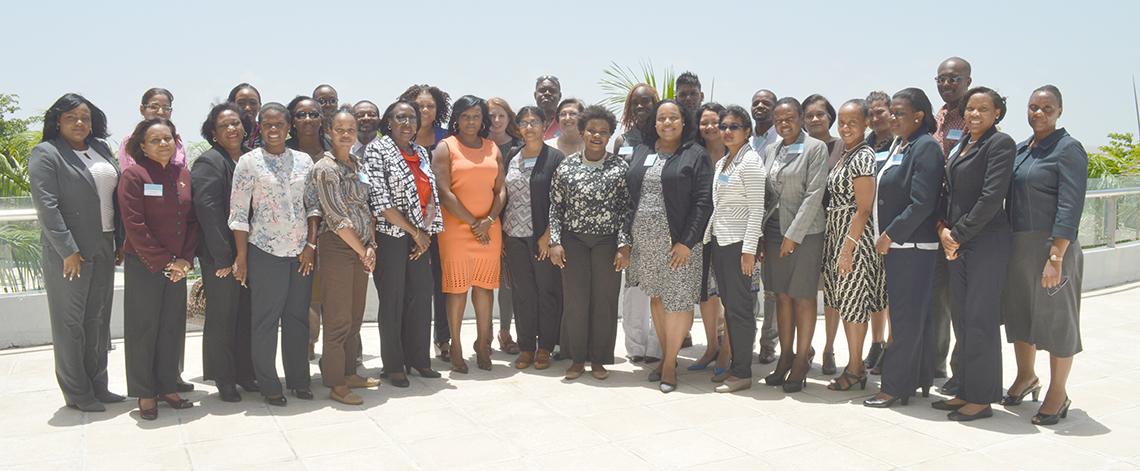NHLBI Hosts Caribbean Capacity Building Workshop

Photo: CARPHA
While the burden of non-communicable diseases (NCDs) such as hypertension, heart disease, COPD and asthma has been pronounced in the U.S. for many years, rates of NCDs are now increasing in low- and middle-income countries (LMICs) at alarming rates. NCDs now constitute the primary causes of death throughout the world, with significant impact to the Caribbean region, where NCDs account for 2 out of 3 deaths overall and NCD management is overwhelming health care services.
Mitigating NCD burden in LMICs requires not only implementation of proven treatment strategies across the health care system, but also sufficient scientific and medical capacity to better understand effective intervention strategies and translate research into practice.
According to Dr. Glennis Andall-Brereton, senior technical officer for NCDs at the Caribbean Public Health Agency (CARPHA), “The NCD epidemic is having a negative impact on the populations and economies of our countries. There is an urgent need to identify what works and implement interventions which will be effective in reducing the burden of NCDs in the small island states of our region.”
In response, the Center for Translation Research and Implementation Science at the National Heart, Lung, and Blood Institute recently partnered with CARPHA to hold a 3-day capacity building technical assistance workshop in Georgetown, Guyana.
The workshop brought together more than 30 researchers and public health professionals from 5 Caribbean countries—along with representatives from the Global Alliance for Chronic Disease, CARPHA, Caribbean ministries of health, NHLBI, the National Cancer Institute, the Center for Scientific Review and Fogarty International Center—around a timely goal to better address the rise in NCD prevalence in the Caribbean region.
The workshop sought to provide early-stage research investigators and medical officers with the tools necessary to better utilize implementation science frameworks for driving improved health outcomes.
The workshop aimed to: expand knowledge of implementation science methodology and practice; introduce participants to both the NIH grant application and peer review processes; highlight key information about NIH funding mechanisms that best support participant research interests; and provide strategies for writing successful grant applications.
In response to the workshop, Dr. Kim Quimby, a participant from Barbados, remarked, “This workshop was a starting point for a new course in my career. It equipped me with the building blocks to study the implementation of proven interventions within my local health care setting. It has also made the process of applying to the NIH for funding feel much less daunting.”
Contact Dr. Brad Newsome (brad.newsome@nih.gov) for more information and conference resources.
